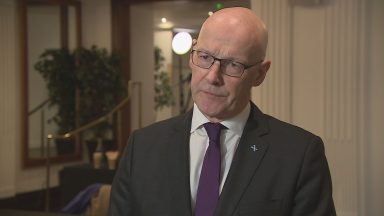A major North Sea oil firm is expected to become the first in the UK to cut jobs as a result of the windfall tax.
Harbour Energy said that the introduction of the Energy Profits Levy (EPL) has meant they’ve “reassessed” their activity in the UK.
STV News understands the London-based firm, which employs around 1,500 workers across the UK, is now looking at cutting its workforce – the majority of which would be at their Aberdeen hub.
The tariff, which was introduced by Rishi Sunak when he was chancellor, was initially described as a 25% excise on extractions of oil and gas in UK waters.
However, incumbent Jeremy Hunt announced it would increase to 35% from January 2023 and remain in place until March 2028 during his Autumn statement.
Opposition parties and environmental groups had called for its introduction as a way of limiting huge profits made by companies on the back of rising wholesale prices after the war in Ukraine.
But the sector had long warned of firms turning their back on the North Sea and reducing investment and possibly seeing job losses.
A Harbour Energy spokesperson said: “Following changes to the EPL, we have had to reassess our future activity levels in the UK.
“We will continue to support investment on the many attractive opportunities within our existing portfolio, but we are scaling back investment in other areas such as new exploration licensing.
“As such, we have initiated a review of our UK organisation to align with lower future activity levels.”
Oil giants including Shell and BP have both said they will “review their investments” in the wake of the announcement.
Industry group OEUK said in response to Harbour’s announcement that the windfall tax will further undercut spending.
A year ago, the offshore energy operators were being taxed at 40% of profits and the UK had a reputation as a stable place to invest.
Sustainability director Mike Tholen said: “We have had two tax rises in the last year and the operators are now being taxed at 75% – by far the highest of any UK industry. Some politicians are also proposing further tax rises and the removal of investment allowances.
“These tax increases, and the threat of more to come, have made the UK a much riskier place to invest and so makes it far more likely that investors will look overseas instead.”
Follow STV News on WhatsApp
Scan the QR code on your mobile device for all the latest news from around the country


 STV News
STV News




















